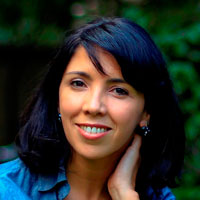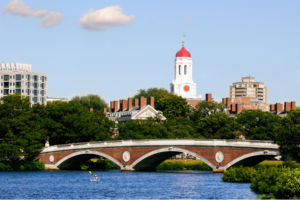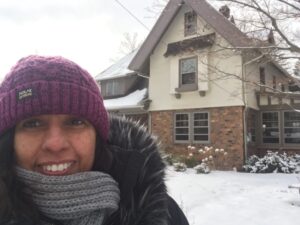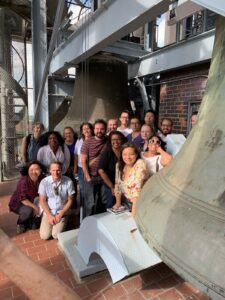We see them in Twitter and LinkedIn profiles pasted next to –or sometimes even preceding– current job titles. They’re badges of pride. Nieman ‘68, Knight-Wallace ‘19, JSK ‘84.
For decades, dozens of journalists from Latin America and around the world have taken advantage of fellowship programs at prestigious U.S. universities that offer the opportunity to pursue special reporting projects, expand knowledge and skills in a particular area of study or just grow intellectually during a sabbatical year to become a better journalist.
Some have spots designated specifically for professionals from Latin America, creating lasting relationships between journalists and newsrooms in that country and academia in the U.S.
In addition to the academic and professional benefits they afford, these fellowships form communities of journalists from around the world who become friends and networks of support.
Here’s how the fellowships benefitted the Latin American journalists who participated, and also how you can be the next to seize the opportunity.
An academic year in Cambridge, Massachusetts
Chilean journalist Paula Molina (Nieman ‘13) explained that the opportunity to study outside one’s native country brings a new point of view to the work, which can then be passed on to the audience.

Chilean journalist Paula Molina was a Nieman Fellow at Harvard University in 2013. (Courtesy)
“I believe that journalism fulfills its role best when it is done from diversity, when it looks up, when it incorporates innovation and new ideas,” she said. “That is why it is important that those of us who exercise it are always challenging ourselves, debating and learning from the streets and academia and conversing with those who have other stories, other perspectives.”
In addition to Molina, the 2013 Nieman Fellows cohort was made up of journalists from England, France, South Korea, China, Spain, Israel, Germany, Senegal, South Africa, Vietnam and across the U.S.
Molina decided to apply for the Nieman Fellowship at Harvard University in Massachusetts based on advice from fellow journalists.
“I started working very early, when I was still at university. I did not have the resources then to consider the option of studying abroad,” she explained. “But those years were the opportunity to learn a lot, to explore and add experiences in different formats (newspapers, magazines, web, television, radio, etc.) and to grow as a journalist.”
The crisis experienced by the journalism industry shaped the topic of study Molina decided to pursue during her time as a fellow.
“The most pressing issue for me and I believe that for my entire generation Nieman was and is the future of journalism: how to face, incorporate, take advantage of new technologies to create more and better journalism,” she said. “Together with a group, we joined a course at MIT [Massachusetts Institute of Technology] and won one of the Knight funds to develop a prototype for media innovation.”

Harvard University in Cambridge, Massachusetts
Molina, editor-in-chief of Cooperativa Podcast, editor of Radio Cooperativa and founder of news chatbot LaBot, said she was (and still is) interested in the shared future of audio, podcast and radio.
“But that was only part of a dozen courses and workshops on leadership, public narratives, politics, innovation, ideas, economics, feminism and others that I explored at Harvard as a Nieman,” the journalist said. “I took writing workshops and courses on Shakespeare. I explored absolutely everything that I could explore, because the offer was practically endless. It was a wonderful learning experience.”
Her time as a fellow reinforced her love for the profession.
“I became part of a community of fellows from different parts of the world from which I continue to learn and feel support,” Molina said. “I adopted innovation, adventure and learning as constant, not exceptional, aspects of our work. Harvard taught me to look at our challenges, common and personal, with a cautious, critical eye and to try to understand their layers and complexities.”
Finding balance in Michigan
For Venezuelan journalist Marielba Núñez, the Knight-Wallace Fellowship was an opportunity to explore a research topic and learn new skills.
“I was especially struck by the fact that they offered total freedom to choose any subject of study that you wanted at the University of Michigan, be it artistic, scientific, business or of any other nature,” she told LJR.

Venezuelan journalist Marielba Núñez in front of the Wallace House at the University of Michigan. (Courtesy)
Núñez, who was part of the 2019-2020 class, chose to focus her study on the impact of migration on young Venezuelans, as well as new narratives to tell their stories.
“I chose subjects at the university with great professors in areas ranging from literature for children and adolescents to international immigration policy, but in addition, many of the seminars we participated in at Wallace House offered me new ideas and perspectives that somehow connected with that topic or offered me other points of view. It was really a time of creativity and growth and now I am starting to work on projects related to these lessons,” she said.
Her studies even brought her into the world of music, where she learned to play the carillon, a large instrument made of bells and played with a kind of keyboard that was located in the university’s bell tower.
Working with Professor Pamela Ruiter-Feenstra and fellow Jet Schouten, from the Netherlands, they decided to create musical pieces to accompany their journalistic projects.
“In my case, for example, I was working on a piece on mining depredation south of the Orinoco, and recently on another piece dedicated to the forced migration of Venezuelans,” Núñez said.
She also composed pieces with Schouten and another fellow, Kwan Young Shin, from South Korea.

The 2019-2020 Knight-Wallace Fellows take a photo inside the University of Michigan carillon. (Courtesy)
“From there the idea of creating a technique that we baptized as Collaborative Investigative Composing was born, which seeks to unite journalistic narration with musical composition and with which we hope many more pieces will be born,” she explained.
One of the pieces is about the Canaima national park and the Pemón Indigenous group. The piece is inspired by children singing, waterfalls, jaguars, and then the destruction of the forest by miners, as Ruiter-Feenstra explained in a video about the composition posted online for Earth Day.
“Without a doubt, that reminded me of all the potential we have in our hands and that we forget to use,” Núñez said of the musical projects.
Another of the valuable lessons she learned was the necessity in finding a balance between the demanding profession and other personal interests.
“I would also say that the opportunity to meet the group of talented journalists from various countries who made up my cohort and who are now also part of my close friends was wonderful,” she added.
Now, COVID-19 has upended many plans for the future, especially those involving travel and academic study. As a result, many journalism fellowships at U.S. universities have been forced to cancel or alter their programs for the upcoming academic year.
We have compiled a list of fellowships that are traditionally open to journalists from outside the U.S, as well as information regarding whether they are accepting applications for the coming year. You can also view a list of alumni for each program from the last ten years.
Journalists selected for the Nieman Fellowships will spend two full semesters at Harvard University in Cambridge, Massachusetts and will audit classes there and at other local universities. They will attend seminars, shop talks, master classes and journalism conferences.
Deadline for international fellows is Dec. 1, 2020. Deadline for U.S. fellows is Jan. 31, 2021.
Alumni
Natalia Guerrero (Colombia; 2020 Knight Latin American Nieman Fellow)
Selymar Colón (Puerto Rico; 2020)
Juan Arredondo (Colombia; 2019 Knight Latin American Nieman Fellow)
Laura N. Pérez Sánchez (Puerto Rico; 2019)
Sebastián Escalón (Guatemala; 2018 Knight Latin American Nieman Fellow)
Marcela Turati (Mexico; 2017 Knight Latin American Nieman Fellow)
Sandra Barrón Ramírez (Mexico; 2017 Knight Visiting Nieman Fellow)
Fabiano Maisonnave (Brazil; 2016 Knight Latin American Nieman Fellow)
Miguel Paz (Chile; 2015)
Elaine Díaz Rodríguez (Cuba; 2015)
Sandra Rodríguez Nieto (Mexico; 2014)
Paula Molina (Chile; 2013)
Daniel Eilemberg (Mexico; 2013 Knight Visiting Nieman Fellow)
Carlos Eduardo Huertas (Colombia; 2012 Knight Latin American Nieman Fellow)
Claudia Méndez Arriaza (Guatemala; 2012 Knight Latin American Nieman Fellow)
Fernando Berguido (Panama; 2011-2012)
Pablo Corral Vega (Ecuador; 2011 Knight Latin American Nieman Fellow)
Hollman Morris Rincón (Colombia; 2011 Knight Latin American Nieman Fellow)
O’Brien Fellowship in Public Service Journalism
Fellows selected for this program will complete an in-depth, multimedia public service journalism project that integrates students at Marquette University as part of the reporting team. Preference is given to applicants living in the Milwaukee area, but the fellowship is open to remote arrangements due to COVID-19.
Deadline to apply is Dec. 1, 2020.
Reynolds Journalism Institute Fellowships
The Reynolds Journalism Institute in Columbia, Missouri offers three types of fellowships: residential, nonresidential and institutional. As part of the first two fellowships, journalists will either spend time at the Missouri School of Journalism or pursue a project on their own. The third fellowship is geared toward managers and executives pursuing projects within their journalism institutions or companies.
Deadlines to apply are Dec. 18, 2020.
Alumni
Alejandro González (Cuba; 2016-2017 Reynolds Journalism Institute Residential Fellow)
As part of the Knight-Bagehot Fellowship in Economics and Business Journalism, fellows will spend an academic year at Columbia University in New York City. Fellows will take courses at the graduate schools of journalism, business, law and international affairs, attend seminars with practitioners and meet with media executives. Applicants must have at least four years of business/economics/finance journalism experience.
Deadline to apply is Jan. 31, 2021.
Alumni
María Eloísa Capurro (Uruguay; 2019-2020)
Carolina Mandl (Brazil; 2015-2016)
The Knight-Wallace Fellowships for Journalists include an academic year of study at the University of Michigan with private seminars, collaborative workshops and international travel. Wallace House created the Knight-Wallace Reporting Fellowship for the 2020-2021 academic year that allows fellows to remain where they live and pair with local or national news organizations for a reporting project. All Reporting Fellows must be U.S. residents or hold a U.S. passport.
For 2021-2022, the type of fellowship to be offered, visa sponsorship and the application timeline has still yet to be determined due to COVID-19 and will be based on public health guidelines. Check the Fellowship’s site in January 2021 for updates.
Alumni
Valeria Collazo Cañizares (Puerto Rico; 2020-2021 Knight-Wallace Reporting Fellow)
Ana Avila (Mexico; 2019-2020)
Maurício Meireles (Brazil; 2019-2020)
Marielba Núñez (Venezuela; 2019-2020)
Daigo Oliva (Brazil; 2018-2019)
Alberto Arce (Mexico; 2017-2018)
Marcelo Moreira (Brazil; 2017-2018)
Mariana Versolato (Brazil; 2017-2018)
Fernando Canzian Da Silva (Brazil; 2016-2017)
Gustavo Patu (Brazil; 2016-2017)
Ricardo Balthazar (Brazil; 2015-2016)
Cecilia Derpich (Chile; 2015-2016)
Silas Martí (Brazil; 2015-2016)
Maria Isabel Soldevila Brea (Dominican Republic; 2015-2016)
Eduardo Augusto Geraque (Brazil; 2014-2015)
Maria Natalia Ortega (Colombia; 2014-2015)
Sergio Rangel (Brazil; 2014-2015)
Martin Bidegaray (Argentina; 2013-2014)
Sylvia Colomgo (Brazil; 2013-2014)
Toni Sciaretta (Brazil; 2013-2014)
Silvio E. G. Cioffi (Brazil; 2012-2013)
Federico Monjeau (Argentina; 2012-2013)
Sabine Righetti (Brazil; 2012-2013)
Julian Gorodischer (Argentina; 2011-2012)
Alencar Izidoro (Brazil; 2011-2012)
Marcelo Leite (Brazil; 2011-2012)
John S. Knight Journalism Fellowships
The JSK Fellowships are based at Stanford University in California and are meant for journalists “who are creating solutions to journalism’s most urgent problems.” Due to COVID-19, fellowship applications are on hold right now. Check JSK social media and website for news.
Alumni
Joseph Poliszuk (Venezuela; 2020 JSK Press Freedom Fellow
Natália Mazotte (Brazil; 2020 Knight Latin American Fellow)
Florencia Coelho (Argentina; 2019 Knight Latin American Fellow)
Guilherme Amado (Brazil; 2018 Knight Latin American Fellow)
Barbara Maseda (Cuba; 2018)
Juan Pablo Meneses (Chile; 2017 Knight Latin American Fellow)
Nathalie Alvaray (Venezuela; 2016 Yahoo! International Fellow)
Daniela Pinheiro (Brazil; 2016 Knight Latin American Fellow
Izabela Moi (Brazil; 2015 Knight Latin American Fellow)
Ana Maria Carrano (Venezuela; 2014 Knight Latin American Fellow)
Maria Lilly Delgado (Nicaragua; 2013 Yahoo! International Fellow)
Adriana Garcia (Brazil; 2013 Knight Latin American Fellow)
Jorge Imbaquingo (Ecuador; 2012 Knight Latin American Fellow)
Judith Torrea (Mexico; 2012 Yahoo! International Fellow)
Gabriela Mafort (Brazil; 2011 Knight Latin American Fellow)
Knight Science Journalism Program at MIT
This 9-month fellowship is open to journalists from around the world to study at the Massachusetts Institute of Technology, Harvard University and other higher education institutions in Cambridge and surrounding Boston. It is for “those who toil at the complex and often fractious intersection of science and public life.” Project fellowships for the current year are remote and were open to U.S. journalists only. The fellows for the 2021-2022 academic year have already been chosen as they are a deferred class for the current year. Applications will open again in Fall 2021.
Alumni
Thiago Medaglia (Brazil; 2019-2020)
Iván Carrillo Pérez (Mexico; 2016-2017)
Federico Kukso (Argentina; 2015-2016)
Oriana Fernandez (Chile; 2014-2015)
Giovana Girardi (Brazil; 2014-2015)
Pablo Correa (Colombia; 2012-2013)